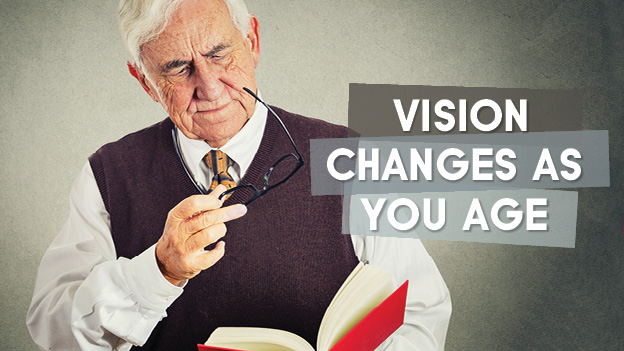As we age, our bodies experience declines in overall performance, including the performance of our eyes. The age-related vision changes become more noticeable as we reach age 60 and older. Some vision changes are entirely normal and do not indicate disease, whereas others may be indications of major eye diseases. This is why eye exams become particularly important when you reach age 50!
Presbyopia
Presbyopia is an ordinary loss of focusing ability, typically noticed after the age of 40. The lens inside your eye hardens as you age and causes difficulty focusing on objects up close. The first signs of presbyopia are often holding a phone or reading material farther away from your eyes. As you age, presbyopia will worsen. Eventually, it requires reading glasses, progressive lenses, or multifocal contact lenses to focus on objects up close.
Structures of the Eye
As individuals age, the structures of the eye can lose strength or desensitize which causes your vision to change. These are often subtle changes over time and make slight impacts on vision.
Pupil Size
Muscles that control pupil size and reaction lose strength over time, causing the pupil to become smaller and less reactive to light.
Dry Eyes
Our bodies produce fewer tears as we age. Women after menopause may experience worse dry eye symptoms than others.
Peripheral Vision
It is normal to experience some loss of peripheral vision. The average decrease in the visual field is 1-3 degrees per decade of life.
Color Vision
The cells responsible for color vision decline in sensitivity as we age, which can cause colors to appear less bright.
Vitreous Detachment
The gel-like substance in your eye, called vitreous, begins to liquefy as you age. It is potentially causing spots and floaters in your vision.
As you age, you should expect vision changes. However, the only way to ensure those changes are normal and not due to eye disease is through comprehensive eye exams with your eye doctor. Additionally, the standard recommendation is for individuals over age 50 to have annual eye exams to protect the health of their eyes.



